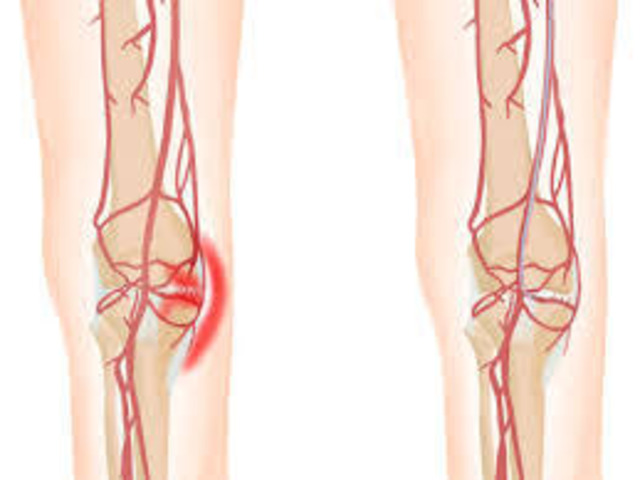Introduction to Genicular Artery Embolization
Genicular Artery Embolization (GAE) is a minimally invasive procedure designed to alleviate knee pain, particularly in patients suffering from osteoarthritis or other degenerative joint conditions. This innovative technique targets the genicular arteries, which supply blood to the knee joint, reducing inflammation and pain by selectively blocking these vessels. At Flowcare, we pride ourselves on delivering cutting-edge medical interventions backed by extensive expertise and a commitment to patient care.
Why Choose Genicular Artery Embolization?
Patients often struggle with chronic knee pain, which can severely impact their quality of life. Traditional treatments, including medications and surgical interventions, may not always provide adequate relief. GAE offers a novel approach with several advantages:
- Minimally Invasive: GAE is performed through a small puncture in the skin, avoiding the need for larger incisions typically associated with open surgery.
- Targeted Treatment: By focusing specifically on the blood supply to the knee, GAE minimizes damage to surrounding tissues.
- Reduced Recovery Time: Most patients experience quicker recovery and can return to normal activities sooner than with traditional surgery.
- Decreased Need for Pain Medications: By reducing inflammation, GAE can significantly lower the reliance on pain medications.
The Expertise Behind GAE at Flowcare
At Flowcare, our team comprises highly experienced interventional radiologists and orthopedic specialists. They possess the expertise to assess each patient’s condition accurately and determine if GAE is the appropriate course of action. With a focus on evidence-based practices, our professionals stay abreast of the latest advancements in medical technology, ensuring that our patients receive the best care possible.
How Does Genicular Artery Embolization Work?
The GAE procedure involves several key steps:
- Patient Assessment: A thorough evaluation is conducted to determine the patient’s medical history and specific knee issues. This may include imaging studies like MRI or CT scans.
- Preparation for Procedure: Patients are provided with pre-procedural instructions, which may include fasting and discontinuing certain medications.
- Embolization Process:
- Accessing the Blood Vessels: A catheter is inserted through a small incision, typically in the groin or wrist, and guided to the genicular arteries using fluoroscopy (real-time X-ray imaging).
- Administering Embolic Agents: Once the catheter is in place, tiny particles are injected into the blood vessels supplying the knee. These particles block the blood flow, leading to reduced inflammation and pain relief.
- Monitoring: Throughout the procedure, vital signs are continuously monitored to ensure patient safety.
- Recovery: After the procedure, patients are usually observed for a few hours before being discharged. Most individuals can resume normal activities within a few days.
Benefits of Genicular Artery Embolization
The benefits of GAE extend beyond pain relief:
- Minimal Scarring: As a minimally invasive procedure, GAE leaves little to no visible scarring compared to traditional surgical methods.
- Lower Risk of Complications: With fewer risks associated with major surgery, such as infection or prolonged recovery times, GAE presents a safer alternative for many patients.
- Improved Mobility: Many patients report a significant increase in mobility and a decrease in pain levels following GAE, enhancing their overall quality of life.
Patient Experiences and Outcomes
At Flowcare, we prioritize patient feedback to continuously improve our services. Numerous patients have shared positive experiences following GAE, emphasizing the rapid pain relief and enhanced mobility they achieved. Testimonials highlight the professional and compassionate care provided by our team, further establishing Flowcare as a trusted provider of innovative medical treatments.
Trust and Transparency at Flowcare
In line with the principles of Experience, Expertise, Authoritativeness, and Trustworthiness (E-E-A-T), Flowcare emphasizes transparency in all patient interactions. We provide comprehensive information about procedures, expected outcomes, and potential risks, empowering patients to make informed decisions about their healthcare.
Aftercare and Follow-Up
Post-procedure care is crucial for optimal recovery. Patients are advised on the following:
- Activity Restrictions: Initially, patients may need to limit strenuous activities. A gradual return to normal routines is encouraged.
- Pain Management: Over-the-counter pain relief may be recommended, and patients should report any unusual symptoms to their healthcare provider.
- Follow-Up Appointments: Regular follow-ups ensure that patients are healing properly and experiencing the intended benefits of the procedure.
Conclusion
Genicular Artery Embolization represents a significant advancement in the management of knee pain, particularly for those who have not found relief through traditional methods. At Flowcare, our commitment to patient care, coupled with our expert team, ensures that individuals receive the highest quality treatment tailored to their needs. If you’re considering GAE or have questions about this innovative procedure, contact Flowcare today for more information and to schedule a consultation.
